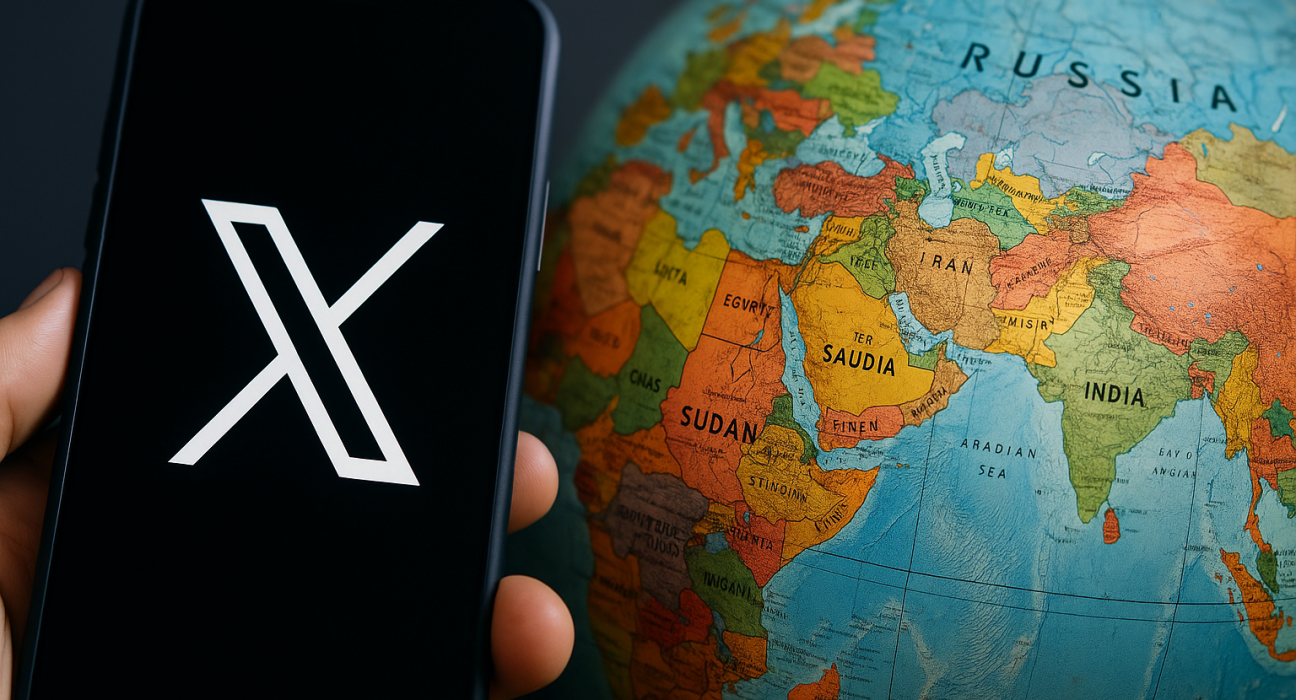A major shift in online political transparency unfolded this week when X (formerly Twitter) rolled out its new feature, “About This Account.” The update instantly revealed that several high-profile pro-Trump, pro-MAGA influencers—many with hundreds of thousands of followers—are not located in the United States despite presenting themselves as patriotic, everyday American conservatives.
Among those exposed were accounts operating from Russia, Nigeria, India, Thailand, and Eastern Europe, even as their profiles used American flags, U.S. city locations, and messaging tailored to evoke grassroots U.S. patriotism. The disclosure has triggered a surge of scrutiny, political debate, and discussion of foreign influence in U.S. political discourse.
This breakdown examines what was exposed, what it means, the benefits and risks of the new transparency tool, and the broader context of foreign activity on American social platforms.
What the Transparency Feature Revealed
X’s new tool publicly displays:
- Account location
- Date of account creation
- Previous username changes
- How the X app was downloaded
- Potential VPN usage
Immediately upon rollout, users discovered that many loud voices in the MAGA movement—accounts known for reposting Trump speeches, attacking Democrats, pushing culture-war narratives, or posting pro-Republican memes—were not U.S.-based.
Some key revelations included:
- MAGANationX (≈400,000 followers): located in Eastern Europe
- IvankaNews (≈1 million followers): operating from Nigeria
- MAGA Scope (≈51,000 followers): in Nigeria
- Dark Maga (≈15,000 followers): run from Thailand
- MAGA Beacon: based in South Asia
- Another account claiming to be a Texas woman: flagged as actually in Russia
The disclosures sparked widespread commentary among political analysts, influencers, and cybersecurity experts.
Why This Matters: The Historical Context
Foreign influence campaigns targeting the U.S.—especially from Russia—became well-known following the 2016 election interference investigations, where troll farms and state-linked actors created accounts pretending to be Americans. Their goal:
- Sow political division
- Promote extremist content
- Amplify misinformation
- Erode trust in democratic institutions
Under Elon Musk’s ownership, content moderation has been dramatically reduced, verification rules have changed, and bot activity has reportedly increased—creating fertile ground for anonymous political influence operations.
With Grok (X’s AI chatbot) already shown to amplify misinformation, the discovery of foreign-based political accounts has renewed concerns about:
- 2026 and 2028 election interference
- Foreign propaganda ecosystems
- The authenticity of online “grassroots” political movements
Pros, Cons, and Neutral Implications of the New Transparency Tool
Pros
1. Greater Transparency Into Online Political Speech
For the first time, everyday users can see whether an account posting highly charged political content is actually located in the U.S.
This helps the public:
- Identify possible foreign influence
- Distinguish genuine voters from coordinated networks
- Make more informed judgments about political messaging
2. Reduced Anonymity for Coordinated Misinformation
Many foreign operators rely heavily on the illusion of being American.
Removing this disguise weakens:
- Bot networks
- Paid influence campaigns
- Troll farms posing as U.S. citizens
3. Increased Accountability on a Platform With Fewer Moderation Policies
Since Musk’s takeover, X has reduced fact-checking staff and limited oversight.
This tool provides some counterbalance by offering transparency even without direct moderation.
Cons
1. VPN Ambiguity Creates a Gray Zone
A user employing a VPN could appear foreign even if they’re legitimate.
Conversely, a foreign actor could use a VPN to appear American.
Thus, the data is helpful but not definitive proof of misconduct.
2. Risk of Overpoliticization
Some political commentators have used the new disclosures to generalize or demonize entire political groups.
This can:
- Deepen existing polarization
- Encourage conspiracy narratives
- Lead to harassment or false accusations
3. Foreign Influence Exposure Isn’t Unique to One Side
While MAGA accounts were the first major group exposed, foreign activity spans all political spaces.
In the past, researchers have found:
- Pro-Israel
- Pro-China
- Left-wing
- Environmental activists
- Crypto-pump groups
all using coordinated foreign networks.
The tool’s rollout could spark a wave of disclosures that affect every political faction.
Neutral Implications
1. It Doesn’t Prove Election Interference—Only Location
Foreign location alone does not equal foreign government interference.
A Nigerian or Indian political content creator could simply be motivated by:
- Profit (clickbait economics)
- Ideology
- Social media engagement incentives
2. Globalization of U.S. Politics
American politics is now global entertainment.
Influencers abroad can gain enormous followings by tapping into partisan discourse—even if they have:
- No voting rights
- No personal stake in U.S. outcomes
3. Social Media Is Now a Primary Battlefield for Identity and Influence
X’s transparency tool highlights a truth long acknowledged in cybersecurity circles:
Political persuasion is no longer local—it’s international, decentralized, and algorithmically amplified.
Conclusion
Elon Musk’s “About This Account” feature has opened a surprising window into the true origins of some of the most followed MAGA-aligned accounts on X. While the revelations are significant, they should be interpreted with caution. Foreign-based accounts do not automatically equate to foreign government interference—but they do raise legitimate concerns about authenticity, transparency, and online political manipulation.
Ultimately, this new tool is a step toward clearer digital accountability, though it may also intensify political disputes. As the U.S. enters another contentious election cycle, understanding who is shaping the conversation—both at home and abroad—has never been more important.
